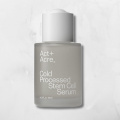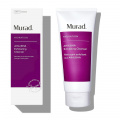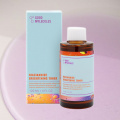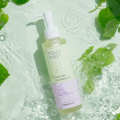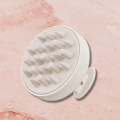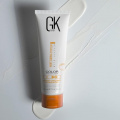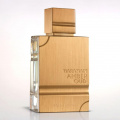Taking Care of Coarse Hair Naturally to Make It Silky Soft
Hair types may prove confusing for some. Especially, when you have coarse hair, finding what suits you may sound difficult. However, it only needs that extra touch of care.
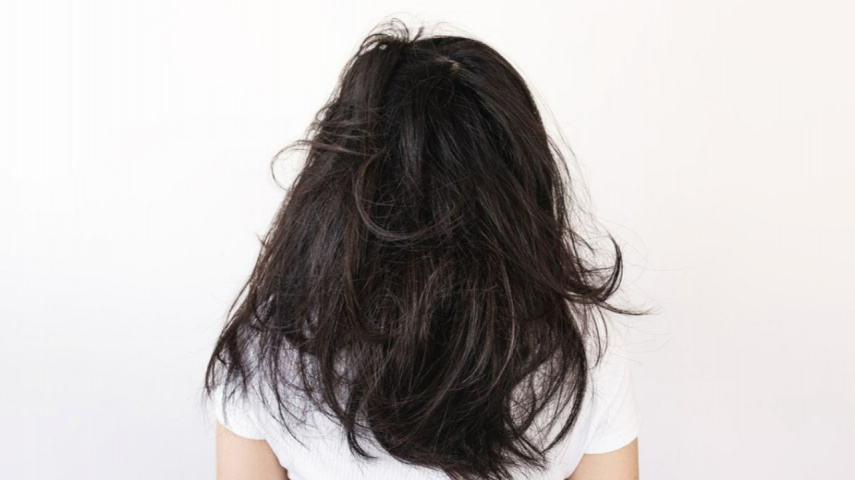
Hair care is important to spruce up your everyday looks. However, with different hair textures and thicknesses, managing hair might not be that simple. One of the hair types, coarse hair, is often misjudged to be hard to manage and style. Well, that might not be entirely true. Hair irrespective of its texture, thickness, and strength needs timely proper care to ensure the damage caused by the environment and other factors does not interfere with its growth and luster.
Our contributor Dr.Harikiran Chekuri, a certified skin specialist (dermatologist), hair transplant expert, cosmetic surgeon, and the medical head of ClinicSpots, suggests providing different forms of attention to different factors of hair damage. He adds, “Hair damage can be caused by various factors, such as excessive styling, chemical processing, overexposure to the sun and swimming pool chemicals, overwashing, winter weather, hard water, and pollution. Depending on the type and extent of hair damage, different treatments, and preventive measures may be needed.”
Coarse hair might need that extra bit of attention but if taken care of properly, it looks just as good. Read through this article to enhance your understanding of this hair type to tend to it properly.
What is Coarse Hair?
Hair is a product of hair follicles (1). In coarse hair, the individual fibers are relatively straight and cylindrical with large diameters (2). These hair fibers are produced by enlarged hair follicles (2). The cross-sectional shape of the hair also determines the nature of the hair (3). The more oval-shaped the cross-section is, the less straight it would be (3). Hair fiber formation may also make the hair coarse (4). Coarse hair may also develop once the vellus hair is expired (5). Usually, coarse hair has more bulk than fine hair (6).
Causes of Coarse Hair (7),(8),(9)
Hair may naturally be coarse. However, other factors that may contribute to making it coarser include:
- Genetics
- Environmental aggressors
- Geographic location
- Diet
- Hormonal imbalance
- The curvature of the hair fiber
- Structure and functioning of the inner sheath
- Thyroid
- Steroids
- Age
- Pollution
- Hair products
- Hair’s cuticle
- Excessive heat styling
How Do You Identify If You Have Coarse Hair?
By Thickness:
- Take an individual strand of your hair.
- Either roll it between your fingers or just observe its texture.
- If you feel it’s not fine, it’s a sign you have a coarse hair type.
- If it’s very thick and has a slight weight to it, you have figured out your hair to be coarse.
Through its Moisture Retention Capabilities:
- Observe your hair texture after oiling,
- Notice if your hair demands more quantity, time, and application for absorption.
- If it does, you may identify your hair as coarse owing to the reason that coarse hair needs more time for absorbing nourishment.
By the Circumference of Hair Strand:
- Take a strand of your hair and assess its circumference.
- You may compare the strand with the fine hair.
- Alternatively, you can gently pluck one hair strand and compare it with a sewing thread to check more accurately.
- If you find that the circumference is quite large, you may have coarse hair. This is because of the fact that coarse hair has the widest circumference among all hair types.
What Is the Difference Between Coarse And Thick Hair?
Thick hair has more density compared to coarse hair. Alternatively, coarse hair has the widest diameter. Thick hair corresponds to a greater probability of a fast growth rate, short interscale distance, and even quite a great probability of having a medulla (10). The peptide called pentapeptides increases the thick hai ratio and enhances the proliferation of human hair keratinocytes (11). Some other notable differences between coarse hair and thick hair are:
- When we refer to thick hair, we generally mean the number of hair follicles.
- On the contrary, the coarseness of the hair may be analyzed individually for each hair strand.
- Unlike thick hair, coarse hair might not indicate hair being voluminous.
- There is a certain texture to coarse hair that necessarily isn’t the case for thick hair.
- Thick hair is relatively easier to manage than coarse hair.
- Thick hair is less tolerant of chemicals and heat treatments as compared to coarse hair types.
- Thick hair might not be as slow to absorb oil and other hair care products when compared to coarse hair.
How to Care for Coarse Hair
Some hair tips that may aid easy management of coarse hair:
Oil Massage: Oil not only protects your hair from damage but also enhances lubrication of the shaft to prevent hair breakage (11). As coarse hair needs more moisture, using oils like coconut oil has an added set of advantages like reducing protein loss, and enhancing hair luster (11).
Using Paraben-Free Shampoos: Parabens may cause difficulty in untangling hair strands apart from causing frizzy effects on the hair (11). And, might not even be suitable for curly hair.
Using Biosurfactants: Mannosylerythritol lipids have been recognized as one of the most promising biosurfactants that are highly beneficial for the recovery of damaged hair as well as for making the hair smooth and flexible (12).
Apply Hair Masks: Applying hair masks can deeply nourish your hair by providing sufficient moisture and nutrients to the scalp. You may try:
Almond Oil And Egg White Mask:
Almond oil has emollient properties and may be used to make dry coarse hair soft and smooth (13). Our contributor Dr. Harikiran Chekuri, shares the importance of emollients properties for hair health. He says, “Emollients are crucial for healthy hair as they moisturize, protect, and smooth it. These oily substances create a protective layer on the hair, sealing in moisture and preventing dryness. They also nourish and replenish essential nutrients, reduce frizz and damage, and shield hair from environmental factors.”
It’s also good for enhancing the elasticity of the hair (13). Yogurt is a natural agent for replenishing the damaged sebum and keratin of the hair (14). It also offers nourishment to the hair and prevents hair loss (14). Using this hair mask may be a good option for tangled and coarse textured hair.
Ingredients:
2 teaspoons of almond oil
1 egg white
Steps to Follow:
- Add 2 teaspoons of almond oil to 1 egg white and mix well.
- Apply on your scalp and hair lengths evenly.
- Let it sit for 2-3 hours.
- Wash it off with lukewarm water and paraben-free shampoo.
Frequency of Usage:
You may use this mask to condition your hair once a week.
Coconut Oil And Onion Oil Mask:
Coconut oil is an excellent lubricant and a natural ingredient that detangles the hair strands, softens and flattens the cuticle surface, and moisturizes the hair (13). Onion oil promotes hair growth and reduces dryness making this an effective mask for dry hair (15). Using this mask might make your wavy coarse hair softer and shinier. Adding any essential oil will ensure the odor of onions doesn’t trigger any irritation.
Ingredients:
2 teaspoons coconut oil
1 teaspoon onion oil
3-4 drops of any essential oil (lavender etc)
Steps to Follow:
- Add 1 teaspoon of onion oil to 2 teaspoons of coconut oil.
- You can also add freshly extracted onion juice.
- Mix well.
- Add 2-3 drops of any essential oil for a pleasant odor.
- Stir well and apply on your scalp and hair lengths.
- Let it sit for 1-2 hours.
- Wash it off with a mild shampoo.
Frequency of Usage:
You can do this once a week.
Castor Oil And Argan Oil Mask:
Castor oil has good penetrability and offers nourishment to the hair follicles apart from contributing towards slight hair growth (13). And, argan oil has proven to enhance hair elasticity as well as regulate sebum production (13). Using this hair mask will improve the texture and strength of your thin coarse hair.
Ingredients:
2 teaspoons of castor oil
1 teaspoon argan oil
Steps to Follow:
- Take the required amount of castor oil and argan oil and mix well.
- Apply on the hair scalp and ends smoothly.
- Let it sit for about 2 hours.
- Wash it off with a mild shampoo.
Frequency of Usage:
You may use this mask twice a week for smoothening hair lengths.
Olive Oil And Honey Mask:
Olive oil when combined with honey has been proven to moisturize hair, improve its thickness and reduce itchiness (13). This combination may work as a deep conditioning treatment for coarse hair.
Ingredients:
1 tablespoon of olive oil
Half a teaspoon of honey
Steps to Follow:
- Add 1 teaspoon of olive oil to half a teaspoon of honey.
- Mix well and apply evenly on your hair scalp and along your hair lengths.
- Let it dry and absorb for 1-2 hours.
- Wash it off with lukewarm water and a chemical-free conditioner.
Frequency of Usage:
You can do this once a week.
Conclusion
Beautiful, healthy hair is an uncompromising requisite when it comes to acing your best looks. Hair looks and becomes healthy with proper care and nourishment. However, with coarse hair, there is this misconception of it being frizzy and hard to manage. Sometimes it’s also confused with a thick hair type which isn’t entirely right either. The best way out would be identifying your hair type and providing it with the right nourishment consistently. No hair type can look less stylish given you’re using the right products and ingredients, and identifying your hair type is where your hair care journey begins.
Contributor: Dr. Harikiran Chekuri, Medical Head - ClinicSpots





 JOIN OUR WHATSAPP CHANNEL
JOIN OUR WHATSAPP CHANNEL



































